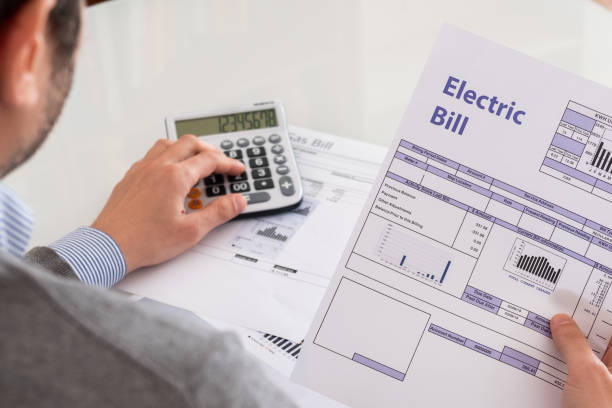Apartment living is becoming more and more common, especially for students and young people moving out of their parent’s house for their first apartment. They are perfect for you if you want to rent your first place.
With that said, if you are looking to rent your first apartment, do not forget about what bills come with apartment living. Apart from the monthly rent, which is the main bill, you will also be required to pay for other bills, such as utility bills, grocery bills, renter’s insurance, among others. When it comes to these, in order to lead a stress-free apartment life, we recommend analyzing your personal finances and sticking to your monthly budget.
Here, we will take you through all the bills you will have to pay on top of your monthly rent.
What Bills to Expect When Renting an Apartment

You will have to make several monthly payments while living in an apartment building/community. Let us consider them below:
Base Rent
This is the main bill you will be required to pay for living in an apartment. In most cases, you will be required to pay it on a monthly basis. We recommend that you spend a maximum of 30% of your monthly income on your apartment rent. However, the actual percentage might vary depending on the location or type of unit.
Within an annual lease agreement, how much rent you pay remains constant month over month. It is not until the lease ends is when your landlord can increase your rent. With that said, with month-to-month leases, the landlord can increase your rent at any time simply by submitting a 30-day written notice.. Therefore, ensure you know how to read an apartment lease well before renting an apartment.
If you want to save on your monthly rent, follow the tips below:
Negotiate for a Lower Rent
Every landlord wants to keep their apartment occupied with good tenants. Remember, it costs them a lot to evict tenants and find new ones, so this gives you some leverage.
You should research the available apartments in your area and list several options. If the landlord fails to offer you a better deal during lease renewal, let them know you have options. If you have proven to be a good tenant, there is a chance they will work with you before potentially losing you. With this being said, you should give reasonable demands while negotiating for a rent decrease.
Rent with a Roommate
This is the most obvious and common option, and it saves by far the most money. For instance, the average one month’s rent in the U.S. for a one bedroom apartment is about $1,663. With a roommate, you will only be required to pay half of that. Such an amount translates into a large savings every year. In fact, you will also save money on other living expenses, such as groceries, toiletries, kitchen supplies, utilities, and monthly food costs.
Search for an Apartment During Winter
The number of tenants looking for apartments for rent during winter is lower than those in the summer. This can be attributed to winter being cold and most people not being comfortable leaving their homes. Also, school is still in session during this time. This is when apartment vacancies can go on for a long time, causing landlords to lose money.
You are likely to find lower rates if you rent an apartment during winter. If you wait, it is almost guaranteed that you will pay more during summer. Rent is higher in the summer thanks to grade schools being out, college graduates flooding the market, and the conducive weather.
Ideally, you should rent an apartment in the winter and sign a lease agreement that extends to the end of summer. Learn what is the best month to look for an apartment here.
Pay Upfront Costs for a Discount
The only sure way of getting a discount when renting an apartment is to pay at least a few months upfront or the entire lease. Even if you can’t pay more than the minimum required upfront, you can still talk to your landlord and ask for possible monthly discounts. It never hurts to ask.
Consider Private Rentals
Private apartments are properties owned by a family or individual rather than corporations. For your information, most large apartment complexes are owned by corporations.
A private apartment could be an apartment complex, guest house, or even a single-family house. Private landlords happen to be laxer as far as rent, deposits, and application fees are concerned. They are also more likely to agree to a rental negotiation and work with you when it comes to evictions
Work for the Landlord
If you are an expert plumber or electrician, for example, you can provide repairs for the property manager for a rent discount. Every time something requires maintenance or repair, the landlord pays a professional to fix it. Therefore, they might be willing to work with you, especially if it saves them money. Try to acquire some skills that you can employ to get rent discounts.
Pet and Security Deposit
After the landlord has approved your apartment, you will have to pay a security deposit. In most cases, the security deposit equals the first month’s rent, but legally can be up to a month and a half’s worth. The deposit is used as security for the landlord to be reimbursed if there is damage to the apartment. If you break the rental agreement earlier or suffer from eviction, you will not get the deposit back. Learn more about what is a security deposit for an apartment here.
The deposit is always due when you sign the lease with the property manager, but are security deposits for apartments refundable? If you pay rent on time and take good care of the apartment, expect to get the deposit back at the end of your lease. In fact, you should think of it as some form of long-term savings. Upon moving out of an apartment, you should get the deposit back within 30 days.
Additionally, most landlords require that you pay a non-refundable pet deposit/fee if you own a pet. The exact amount to be paid varies depending on the landlord, however you should expect it to be between $200-$500. Be sure to review the apartment pet policy for all details.
Apartment Moving Costs
Every time you move into a new apartment, expect to incur costs, especially if using a moving company. Even if you decide to use your truck, you will still spend money to pay for gas.
Realistically, you should hire a professional moving company or at least rent a moving truck, if possible. Research the available movers and ensure that you only deal with reputable ones. Also, be keen to determine whether the travel time is incorporated into the cost estimate.
For your own good, factor in other costs associated with the move date, too. A good example is time taken off work. Remember, not earning money is always the same as spending it.
Rental Application Fee
Most property management companies and landlords require that everyone applying to rent an apartment pay an application fee. The application fee could be as low as $20 or as high as $75, but these are just averages. In most cases, this amount is non-refundable.
If you apply for an apartment with a roommate, you might be forced to pay separate application fees. It is expected that the landlord will use the application fee to find out critical information about you and your roommates, like running background checks. The background check focuses on the eviction history, criminal history, and credit history, for the most part. The landlord will also determine your income and employment status from check stubs, bank statements, and/or tax returns, which are also typically required. This can help them establish how affordable it is for you to pay the rent.
Even when you have negative aspects on the background check, such as bad credit, you can still qualify for an apartment. Find out about apartments that accept bad credit here.
Renter’s Insurance
Most leases require that a potential tenant have renter’s insurance, but what exactly is it, and what does it do?
The renter’s insurance does not protect the property, but rather your personal stuff in the property. Renter’s insurance also offers liability coverage. If a person gets injured in your apartment and sues you, you will be covered.
An insurance policy could cost up to $25 monthly, on average. However if you bundle the policy with your auto insurance company, you will likely get a discount. Several factors influence the cost of your policy. For instance, having an aggressive dog exposes visitors to the danger of being bitten, thus, translating into a higher rate. Let us consider the factors influencing the policy prices below:
Apartment Location
This is one factor you have little to no control over. The insurance prices always fluctuate from one apartment community to another throughout the country. If you reside in a location prone to earthquakes and flooding, the insurance will likely cost more. This is because a standard policy does not typically cover such losses.
Amount of Coverage
The amount of coverage you select has a major impact on the policy price. We recommend that you insure everything in the apartment since a fire breakdown can damage everything. For your information, a general renter’s insurance policy does not cover valuable items, such as antiques or expensive jewelry.
Deductible
This involves the amount you pay for any loss before your insurance coverage begins. The more you are willing to pay, the less the premium costs. Although the move keeps the cost down, you should ensure that you can afford the deductible.
Discounts
You can get discounts for things, such as fire extinguishers, sprinkler systems, fire and smoke detectors, deadbolts, and burglar alarms. When speaking to the insurance agent, ask for the available discounts and the ones you qualify for.
Actual Cash Value vs. Replacement Cost
When your insurance policy says it will pay for actual cash value, it implies paying for the item value at the time of loss. For instance, you might have bought a fridge for $300 about five years ago, but its current value may be $80. Your insurance policy only guarantees you the $80 in this scenario.
On the contrary, replacement cost coverage lets you replace damaged or lost possessions with a new item at the current value to replace it. Therefore, you should expect the replacement cost coverage to cost more than the actual cash value coverage. Regardless of the high cost, we still recommend the replacement cost options.
Utilities and Streaming Services (Internet Bill)
Depending on the apartment you select, you might be responsible for paying streaming services and utility bills. While many apartment complexes cover some of such expenses, you should seek clarification from the landlord or utility companies on what is not included to budget your monthly expenses well. Find various apartments with utilities included in Michigan here.
If the apartment management covers nothing, financial responsibilities, such as a water bill, cable, internet, gas, pick-up, parking space, and electricity bills will be on you. Potential tenants with poor payment history may be required to pay for an additional utility deposit. There are services, such as streaming services, that require you to pay a start of the service fee. This fee is meant to allow the service to be set up for the first time.
If you decide to share the apartment with a roommate, agree on how to share the utility expenses. You can also follow the tips below on how to keep utility bills low in an apartment:
Unplug All Appliances When Not in Use
Many tenants pay a lot of money for electricity costs. You can save on your electric bill by unplugging appliances from the sockets when not in use. It has been proven that some appliances use power when plugged in, even when not in use.
Use LED Bulbs or Compact Fluorescents
Upgrading your bulbs to more energy-efficient options will help you to save energy. For your information, LED bulbs consume 75% less energy than normal bulbs. This translates into saving about $1.25 monthly per bulb. This will help you save a lot, especially if you have many bulbs in your home.
Enable Air Flow
We recommend that you augment your A/C with box and ceiling fans. Ensure that the ceiling fans operate counterclockwise, which will push cool air towards the floor, thus, improving comfort levels. Additionally, ensure that there is no furniture blocking air vents, and your filters should also be clean. Enabling airflow lets you reduce the effort needed for the A/C to cool your home, thus limiting energy consumption.
Turn Down the Heater
Ensure you turn down the water heater to about 120 degrees Fahrenheit. For every 10 degrees decreased in your current heater temperature, you save between 3-5% on your heating costs.
Adjust the Thermostat
There is no point in leaving the thermostat on all the time, even when you are away. Every time you leave the apartment, ensure you turn the thermostat down. This will save you a lot in energy costs.
Upgrade and Service the HVAC Equipment
Servicing your HVAC equipment is guaranteed to keep the utility costs low. Apart from helping to limit unexpected repairs, extending the equipment lifespan, and safeguarding the indoor air quality, it also improves efficiency. Since old HVAC equipment will not operate as effectively as new ones, we recommend upgrading them when they become too old.









